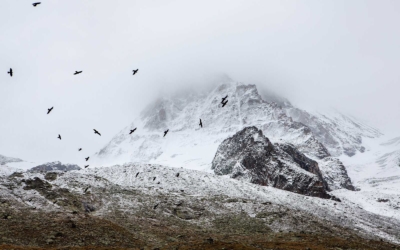A Russian-language website seen by the BBC offers various packages for expecting mothers who wish to give birth in Argentina. The website advertises services such as personalised birth plans, airport pick-ups, Spanish lessons and discounts on the cost of stays in “the best hospitals in the Argentinian capital”.
- Argentinians, like many in Latin America, call the phenomenon femicidio, highlighting the female victim whose murder is often, though not exclusively, perpetrated by an intimate partner.
- “Women started talking about their experiences or experiences of a friend. Families started talking about it at the dinner table. Everybody started realizing that they knew someone who had an abortion or they themselves had an abortion,” Casas said.
- The 2009 law on violence against women (Law 26.485) has comprehensive provisions against sexual violence, including sexual violence within marriage (in particular Article 5).
- To date, researchers have successfully cured two other people therapeutically — in both cases through complex and dangerous stem cell transplants.
- The movement grew to encompass not only a call to end femicide but also a campaign to bring awareness to other forms of female discrimination in Argentina.
Connecting worlds—of business and government, social and geographical, past and future—is what motivates Angelica Carrizo Bonetto, an alumna of the Department of State’s International Visitor Leadership Program On Demand. An adviser in Usuaia’s municipal legislature as well as a teacher of political history, Angelica has a foot in both the political and academic worlds. She was kind enough to take time out of her busy day to share her passion for serving as a link between them, and beyond. It was through this programme that Foro de Mujeres para la Igualdad de Oportunidades was able to conduct the bilingual training sessions in the Wichí Indigenous communities of El Carboncito in Salta Province. The initiative, and the women that run it, provide shelter and essential services for women and girls who experience violence.
Spotlight initiative, a global campaign focused on combating gender-based violence worldwide. In December 2020, Argentina’s Congress passed a landmark bill to legalize abortion up to the 14th week of pregnancy.
Activists gain success in Argentina on abortion rights
Read the latest from our https://countrywaybridalboutique.com/latin-women-features/argentinian-women-features/ staff, grantees, and partners about how we’re working around the world to build vibrant and inclusive democracies whose governments https://meatco.sa/the-impact-of-conditional-cash-transfers-on-marriage-and-divorce/ are accountable and open to the participation of all people. By entering your email address and clicking “Submit,” you agree to receive updates from the Open Society Foundations about our work. To learn more about how we use and protect your personal data, please view our privacy policy.
It’s a case that highlights how the COVID-19 pandemic has made violence against women in Argentina, Brazil, Bolivia, Peru and other countries worse, according to Beatriz Nice, a program assistant for the Wilson Center’s Latin American Program. In 2018, the International Monetary Fund and the Macri administration agreed on a US$57 billion loan. At time of writing, the Fernández administration was re-negotiating the IMF loan amid a deep economic crisis that predates the pandemic and was deepened by it. The crisis has severely impacted people living in poverty, who according to government statistics amount to 40 percent of the population.
Children’s Rights
The new law also provided for gender equality between the wife and husband. By 1987, when divorce was legalized, only three other Latin American countries prohibited divorce (Paraguay and Colombia, which legalized it 1991, and Chile which legalized it in 2004). Also, a new Civil and Commercial Code, modernizing family law, came into force in August 2015. Following President Juan Perón’s enactment of women’s suffrage in 1949, First Lady Evita Perón led the Peronist Women’s Party until her death in 1952, and helped enhance the role of women in Argentine society.
Development
There are a number of documented cases of people who have stopped antiretroviral treatment, in particular if they started such therapy very soon after contracting the virus, who have not seen their viral load rebound for years. Willenberg’s case of an apparent natural cure of HIV is quite similar to the Esperanza patient’s, according to Yu. The virologist theorized that each of these women may have mounted a particularly potent killer T-cell response to the virus — an immunological full-court press that researchers could possibly one day recapitulate therapeutically. The case serves as one of two proofs of concept that a so-called sterilizing cure of the virus is apparently possible through natural immunity.
The Executive Branch approved the extension of Emergency Law 26,160 ordering the suspension of evictions of Indigenous communities. However, the National Institute for Indigenous Affairs barely made any progress in carrying out the survey of Indigenous territories mandated by the same law, with just 43% of the survey completed by the end of the year. By December, at least 37 judicial actions had been initiated against the abortion law. According to official figures, by June, 40.6% of the population was living in poverty and the unemployment rate was 8.6% in the third trimester of the year. Complete songs for voice and piano by Argentinian female composer Irma Urteaga. The Book provides an introductory study in English and Spanish, contextualizing the composer, the songs, and the Argentinian art song´s development. It also provides sheet music, poetry translation into English, and IPA transcription.




